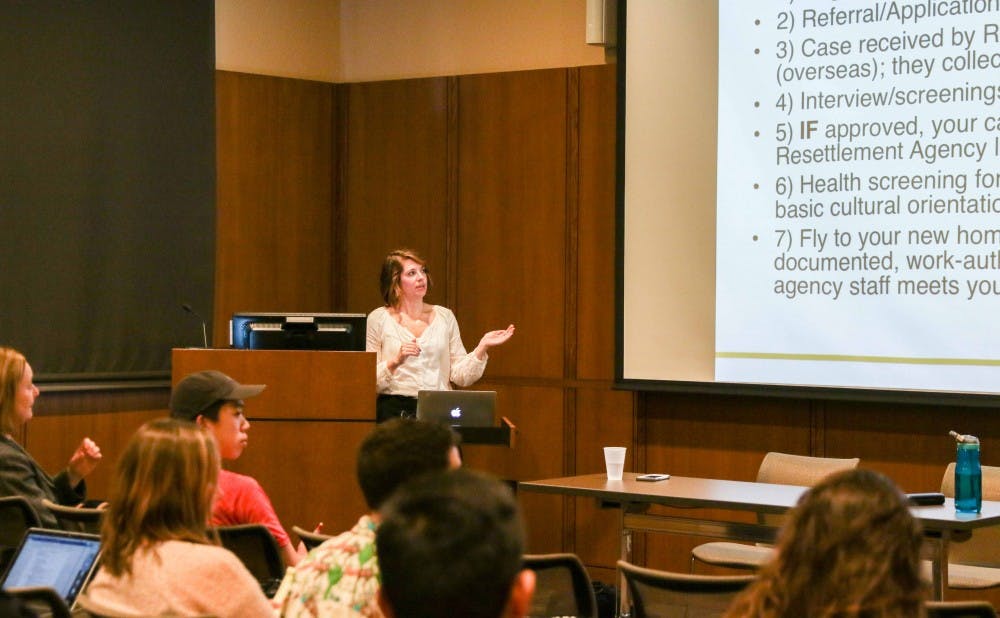Refugee experts discussed the role financial assistance plays in helping refugees acclimate to American society, but said politics might get in the way.
Ellen Andrews, director of Durham's Church World Service, said support for refugee immigrants upon entering the United States is typically centered around developing their self-sufficiency. The MERIT project, for example, gives small loans to local refugees in an effort to jumpstart their own businesses, explained Maha Elobeid, director of programs at the University of North Carolina at Greensboro.
Both Andrews and Elobeid said refugee advocacy groups are concerned that President Donald Trump’s plans for immigration could cause irrevocable damage. Trump recently announced plans to sign an executive order suspending immigration from several Middle Eastern countries as well as barring Syrian refugees.
“If you're talking about incoming money that is [calculated per refugee], putting a form of pause on the program means that you're talking about nonprofits who have no income for four months,” Andrews said. “So they are going to end up completely dismantling their offices and then, if and when refugees do begin coming in, all of their experienced staff members have been laid off. So you're starting from scratch [since] you've developed infrastructure based on projected numbers that you just threw out the window."
Andrews added that CWS, which serves as a network for newly-arrived refugees, is now seeking private donations to continue its activities in the coming months. Elobeid works at the Center for New North Carolinians, which also supports refugee immigrants and conducts research on how to best integrate them into American culture.
Of the estimated 65 million refugee population worldwide, Elobeid said only about one percent are strong candidates for resettlement. But after the September 11 attacks, the government placed a stronger emphasis on making sure that incoming refugees carry no terrorist ties, which she said is a legitimate concern. At the same time, she said, extensive measures are already in place to prevent any dangerous applicants from slipping by.
For the time being, Elobeid said she and her team plan to continue the MERIT project, which is funded through a grant from the federal Office of Refugee Resettlement. Once refugees receive a loan from the program, she explained that they have a three-month grace period, and then the loan is paid back in monthly installments during the next three years.
"This is a very small-term loan, but the main idea is for them to start building credit and being able to get into the business practice,” Elobeid said. “No bank is going to take on somebody who has zero credit, so our role is to help them build on that."
The program’s repayment rate is greater than 90 percent, she said, and has helped establish a variety of businesses ranging from taxi cabs to ice cream trucks. The majority of its recipients are located in Greenville but some have also spread to Raleigh and Durham.
The MERIT system has also helped build a community among the refugees that it serves, Elobeid said, because MERIT-supported businesses often work with each other in complementary roles.
"Sometimes we pair people together," she said. "For example, the person who [operates] a tow truck, we match him to the used car dealership. Because it's a used car dealership, they can use each other's services. We try to make sure they understand that they need to pool their resources together to be able to succeed, and we put the good word out for them in the community. We're happy that many of them are flourishing.”
Get The Chronicle straight to your inbox
Signup for our weekly newsletter. Cancel at any time.

